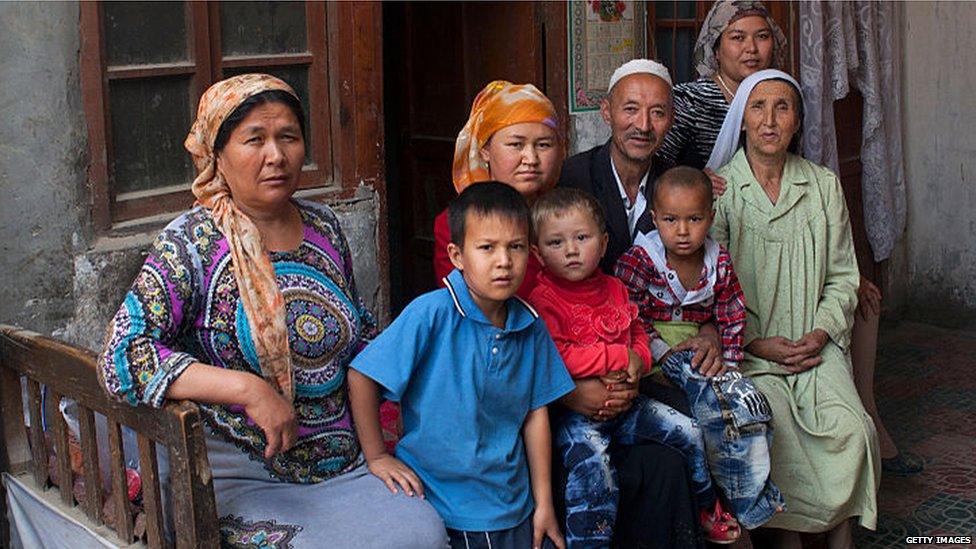China steps up operations in Xinjiang
- Published
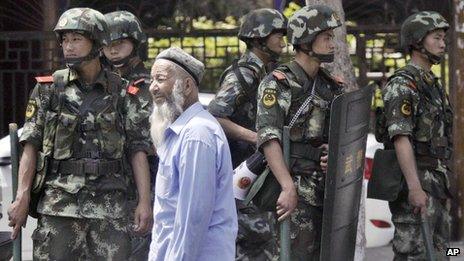
Armed police were visible on the streets of Xinjiang's capital Urumqi on Saturday
China says it will step up its operations in the western Xinjiang region, after days of unrest.
State-run media reported that more than 100 people riding motorcycles, some wielding knives, attacked a police station in remote Hotan on Friday.
It follows Wednesday's clashes elsewhere in Xinjiang which killed 35.
At a meeting chaired by President Xi Jinping, China's leaders resolved to crack down on those responsible for the violence.
Senior Communist Party official Yu Zhengsheng said China "would strike hard on violent terrorist attacks," according to state-run Xinhua, external.
Appealing for calm and vigilance from local people at a meeting in Xinjiang's capital Urumqi, Mr Yu said China would impose severe punishment on those taking part in violent crimes.
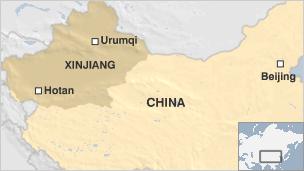
"We will step up the actions to crack down upon terrorist groups and extremist organisations and track the wanted," Mr Yu added.
A military exercise took place on the streets of Urumqi on Saturday, according to Agence France-Presse news agency.
The agency reported that large sections of the city centre were shut down as tanks and armed personnel blocked access to streets.
China's Global Times, which is owned by the Communist Party, says that security has been beefed up in Xinjiang.
Confirming reports from the region is difficult because information is tightly controlled.
Ethnic divisions
Xinjiang has seen sporadic outbreaks of violence fuelled by ethnic tensions.
The Muslim Uighur community makes up about 45% of the population in the region, which borders central Asia. Many Uighurs feel that an influx of Han Chinese has left them and their culture marginalised.
The latest unrest comes ahead of the fourth anniversary of rioting in Urumqi, in which almost 200 people died.
The BBC's former Beijing correspondent, Michael Bristow, says Chinese officials use the label "terrorist" for most opponents in Xinjiang.
Many think the real cause for the region's sporadic unrest is Beijing's heavy-handed treatment of the ethnic Uighurs, he says.
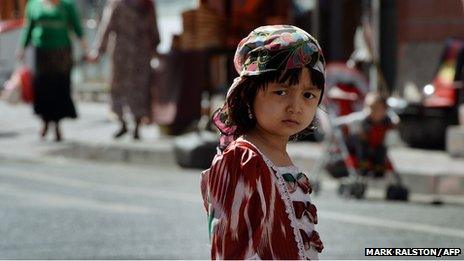
Uighurs are culturally distinct from Han Chinese, who make up the majority of the population in China
- Published28 June 2013
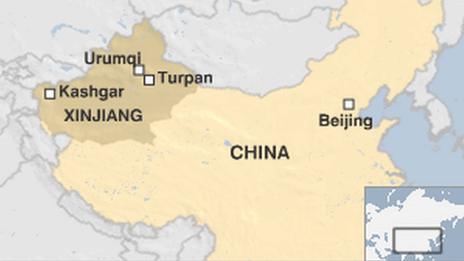
- Published26 June 2013

- Published29 April 2013
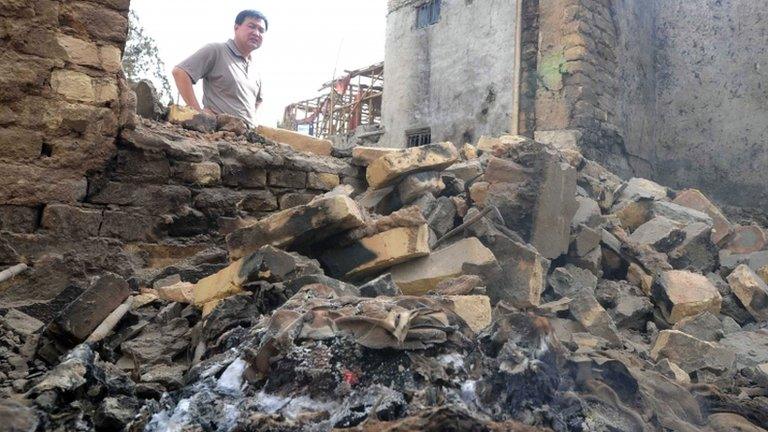
- Published26 April 2013
- Published24 May 2022
